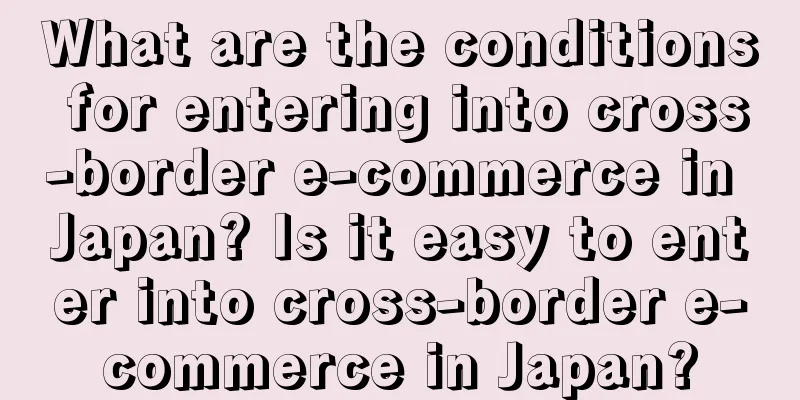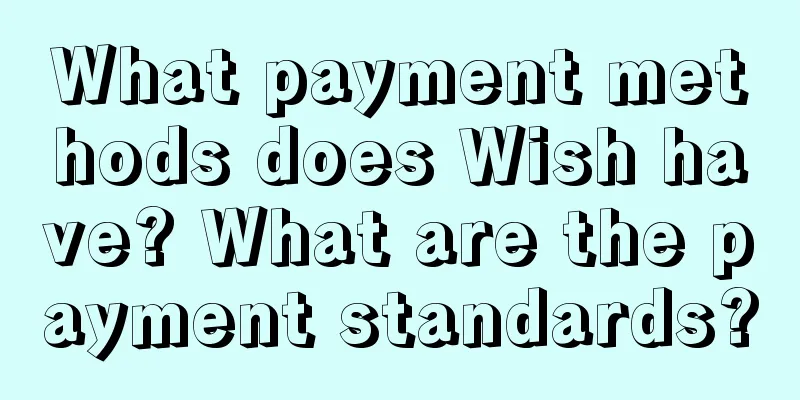Behind the ranking of China's overseas short drama apps: Did the "bosses" make money?

"Marriage first, love later", "Sweet revenge", "Dating a billionaire" are the "earthy" plots that are familiar to domestic short drama users. Now, with the promotion of short drama apps overseas, they are becoming familiar to European and American users. The only difference is that the actors have been replaced with Western faces. The same as the payment model of domestic short dramas - when the plot appeal reaches its peak, the short drama App will pop up a window to remind you: you must pay to continue watching the next plot. While TikTok is under scrutiny from global regulators, short drama apps have quietly emerged and have grown into another force in China's overseas content exports. In addition to ShortTV's recent rise to the top in downloads on the US App Store, several well-known short drama overseas platform apps such as FlexTV ReelShort have topped the Android Google Play App Store and iOS App Store app store charts several times. MIT Technology Review calls these short drama platforms "China's next cultural export": more and more Chinese creators have found that the content that Chinese users are addicted to will also be enthusiastically sought after by European and American users; just as the Chinese love cheap online shopping and more efficient delivery speeds, they have also achieved huge success in the European and American markets, but this time it is finally the turn of the "bosses". Open the introduction of these short drama platform apps in the app store, and you can see that the main content promoted by these platforms are basically "sweet and cruel story of the boss", "time travel and revenge", "fighting monsters in the workplace", and "counterattack from the bottom". Compared with the increasingly tightened short drama supervision in China and the traffic distribution restricted by video platforms, overseas has long become the next destination for domestic short dramas: now almost all domestic short drama companies have their own overseas businesses; overseas users' usage habits also prefer relatively independent video platforms - the premise of all this is of course that there is enough novel content on the platform to support it. Since overseas short drama platforms are not restricted by distribution licenses, the number of dramas on mainstream short drama overseas platforms has shown an explosive trend, seeking to expand the number of dramas on the platform in a short period of time - several major overseas short drama platforms have set ambitious production plans for the number of short dramas. Short dramas are similar to short videos, but they are different from real short video platforms such as TikTok and Instagram. Because of the content format, they rely more on the platform itself than short videos. Compared with TikTok, they are more like exclusive content platforms such as Netflix and Disney+ that have their own copyrights and cooperative filming teams. However, the content designed for the vertical screen ratio of mobile phones makes its look and feel highly similar to short video applications. But often in a single two-minute episode, the audience can get several unexpected plot twists: even though the total length of nearly a hundred episodes is less than the length of a movie, the plot includes hundreds of twists. This content format is not created by China's short drama overseas team. The rise of domestic short drama platforms overseas began in the late stage of the COVID-19 pandemic, but earlier, DreamWorks founder Jeffrey Katzenberg released a short drama app called Quibi in 2020. It is seen by the outside world as Hollywood's hope in the new era. But just half a year later, Quibi had burned through nearly 10 billion yuan in funds and had to announce the death of the project. At that time, the movie tycoon attributed the failure to the impact of the epidemic on the offline film and television industry. The key to ReelShort's survival and even rapid profitability in the early stages lies in its extremely strict control over production costs: people familiar with the matter said that the cost of ReelShort's entire series was required to be kept below $300,000 - even less than a quarter of Netflix's average cost per episode. Such costs naturally cannot support the glittering Hollywood creative team. Even though ReelShort has expressed its desire to invest more in more popular themes that can go viral, ReelShort has also set a plan to increase the number of short dramas on the platform to 75-100 by 2024 - such a scale expectation also limits the investment cost of a single drama and is destined to differentiate the quality of its content. In addition to its low cost, Quibi, which aims to be high-profile, has fallen into the misconceptions of traditional film and television people from the very beginning: the audiences of traditional TV and subscription streaming services will not be interested in these overly short and fast content: essentially, the audiences of these short dramas still come from TikTok users, so overseas short dramas generally choose to be closer to the emotional processing of short videos in terms of content rhythm. Low production costs are only one link in the entire production chain of overseas short dramas: for independent short drama platforms, the cost spent on investment accounts for a larger proportion of the entire production process, but popular products are often born with investment. In addition to advertising on major Internet advertising platforms such as Google, Meta and X (Twitter), YouTube and TikTok are also the main battlefields for short drama overseas marketing: many popular short dramas from ReelShort have had a driving effect on new viewers on TikTok. A common model includes releasing the first 20 episodes of a drama for free on platforms such as TikTok and YouTube Short. This kind of traffic investment model is not uncommon for Chinese short drama platforms that go overseas. Especially when a short drama on the platform becomes popular on social media and becomes a "hit", the platform will further increase its purchase of traffic on this basis, and even in the form of application update logs in the app store, so that more potential viewers can see the plot introduction of a new drama. 1. Localization based on local conditionsFor a long time, short drama overseas platforms have been presenting themselves as "niche film and television dramas", targeting a more precise part of TikTok's audience. Therefore, although TikTok has been banned in India, the overseas expansion of short drama platforms has been dormant in India and has been subject to much less regulatory pressure, especially ReelShort, which focuses on self-production and self-sales by local teams. After TikTok was banned, it quickly became a new destination for Indian users. But looking at the world as a whole, users in Europe and the United States are still the most valuable. Under the premise that the average customer acquisition cost is US$3-5, European and American users can often bring in US$8-15 in revenue. Among them, the RPD (cumulative revenue/cumulative downloads) of North American users is even US$2-3 higher than that of Europe, so the competition is the most intense. As the overseas short drama market has gradually become a capital game, the Middle East, which had long been neglected due to cultural differences and regulatory issues, has also become a new battlefield for some platforms to go overseas. However, at present, the trial of domestic short drama export platforms in the Middle East is only limited to the local English user groups. More localized content still needs to be nurtured by local teams. However, the broad market prospects have attracted many short drama teams to create short drama content tailored to the local Arabic cultural environment and religious background. For example, mythological love stories with obvious religious characteristics will be sought after by local users. This mode of creating content tailored to the characteristics of different regional issues has become a consensus among short drama overseas teams, but there have been few changes in the profit model - advertising monetization and content subscription models often coexist on these short drama platforms. Even if users in some regions have a lower willingness to purchase directly, they can still catch up on an entire series by watching a large number of advertisements. At the same time, the advertisements on the platform have the advantage of a more precise audience, and the conversion effect is better than that of third-party advertising platforms such as Google. At present, overseas users (especially European and American users) often complain about these domestic short drama platforms because of the excessive number of advertisements: for a free user, if he wants to watch a one-minute short drama, he often needs to watch 2-4 minutes of advertisements. Users who are unable to bear the annoyance but are deeply involved in the plot can only reluctantly buy membership on the platform. Although this payment mechanism has attracted many complaints from users and even attracted many users' one-star reviews in the app store, this is actually the business model that Netflix has always dreamed of. When Netflix promoted the hybrid model of subscription fee + advertising to its subscribers, it aroused a huge wave of resistance from users. However, the short drama platform chose a combination of advertising + subscription and even pay-per-episode payment methods from the very beginning, which eliminated users' defenses. In ReelShort, users must purchase in-app tokens called "coins" and unlock more episodes with "coins". According to statistics, if you want to watch the entire episode in one go, you need to spend between $10 and $20. Even though the themes created by many short drama teams overlap a lot, they can still get impressive ROI data: just four months after its launch, ReelShort's revenue reached 22 million US dollars. With the existing drama content, ReelShort can already obtain a stable daily income of 200,000 to 400,000 US dollars - enough to cover the production cost of a drama. 2. Local Content Supply ChainThe demand for high-speed and stable content production has also quickly exposed the biggest shortcoming of this industry chain - the scarcity of screenwriters/scripts. In addition to the overseas short drama platforms, most of them have corresponding upstream online literature manufacturers as IP support. Even some local short drama apps have online literature platforms such as China Literature and China Literature behind them. In order to meet the demand for more local content production, overseas short dramas are now beginning to pursue creative content written by local screenwriters: even though there are still many domestic screenwriter teams helping in the cooperation model, the proportion of overseas screenwriters participating in content writing has been growing rapidly. The output capacity of local filming teams is also crucial to the growing demand for short dramas: FlexTV, one of the first companies to enter the European and American markets, has established a relatively mature local short drama production model: an agency based in Missouri is responsible for local casting/dubbing, and a production company in Hollywood is responsible for post-production of video materials. These localized short dramas are more likely to become hits: ShortTV's significant growth in the European and American markets in early 2024 is also related to its continued update of dramas starring European and American actors at the scale of 6 dramas per week in the past. Since the employment of overseas actors involves local factors such as trade unions, some platforms with more aggressive investment speeds are more inclined to choose local film and television companies to assist in casting and filming. At the same time, they can also better deploy content teams that understand the preferences of local young people. The more complete copyright system overseas has also become a thunder point that the short drama production team has to deal with carefully: even if the soundtrack clip only appears for less than 10 seconds in a certain drama, it will be reviewed by platforms such as YouTube and judged as infringement. The video will be removed from the shelves or the proceeds will be returned to the original author. But relatively speaking, overseas short drama platforms are less worried about pirated resources flying around. Therefore, there are rarely problems with short drama content being preemptively transferred to other platforms, and the team can focus more on content creation itself. It is too early to call these short drama platforms the "next TikTok", and the threshold is not as low as the outside world imagines. Behind the glamorous data, short drama platforms are still troubled by issues such as censorship, investment, and user viewing habits, but the considerable potential long-term benefits are still attracting more and more capital to enter the market. Reporter: Zhang Yongyi, Editor: Gao Yulei Source: WeChat public account "Power Plant" |
>>: 8 AI video generation products tested, which one will become China's Sora?
Recommend
What are the cross-border e-commerce platforms suitable for beginners? How to choose?
The momentum of cross-border e-commerce platforms ...
Dingdong Maicai launches the "Nutritional Choice" label, and the trend of beverage ingredients has finally reached e-commerce
Recently, Dingdong Maicai officially launched the ...
In the Year of Fire, how should luxury goods carry out marketing?
This article deeply analyzes the generational chan...
Shopee adjusts overseas warehouse fees in Thailand and Mexico
Shopee announced that it will adjust its overseas ...
What should you pay attention to when purchasing from cross-border e-commerce? What are the purchasing channels?
With the development of global trade and the rise ...
Where is Amazon's customer service center? How do I access it?
Many people still have questions about the Amazon ...
Which payment account is better to bind to Shopee? What are the advantages?
If you open a store on the Shopee platform, you al...
How to play the lucky draw notes on Xiaohongshu? Just read this article!
The lucky draw function should be familiar to Xiao...
Tencent's conscientious app will be shut down, netizens regret: it was so useful...
Tencent has a rich product matrix, ranging from so...
The road to a higher salary: Eight essential skills for senior data analysts
This article summarizes the eight abilities that a...
How often do you get bored?
Are you afraid of boredom? What kind of boredom do...
The Games are over, let’s look at the value of Olympic creativity
With the successful conclusion of the Olympic Game...
A review of the popular cultural and tourism IPs in the past five months this year: the average lifespan is only 25 days
Recently, cultural and tourism IPs have been very ...
A "Rose Story", a group of snickering brands
Why can a TV series make multiple brands laugh? Th...
Research Report | The Evolution of Social Media Marketing in the AI Era by 2024
In the AI era, social media marketing is undergo...









